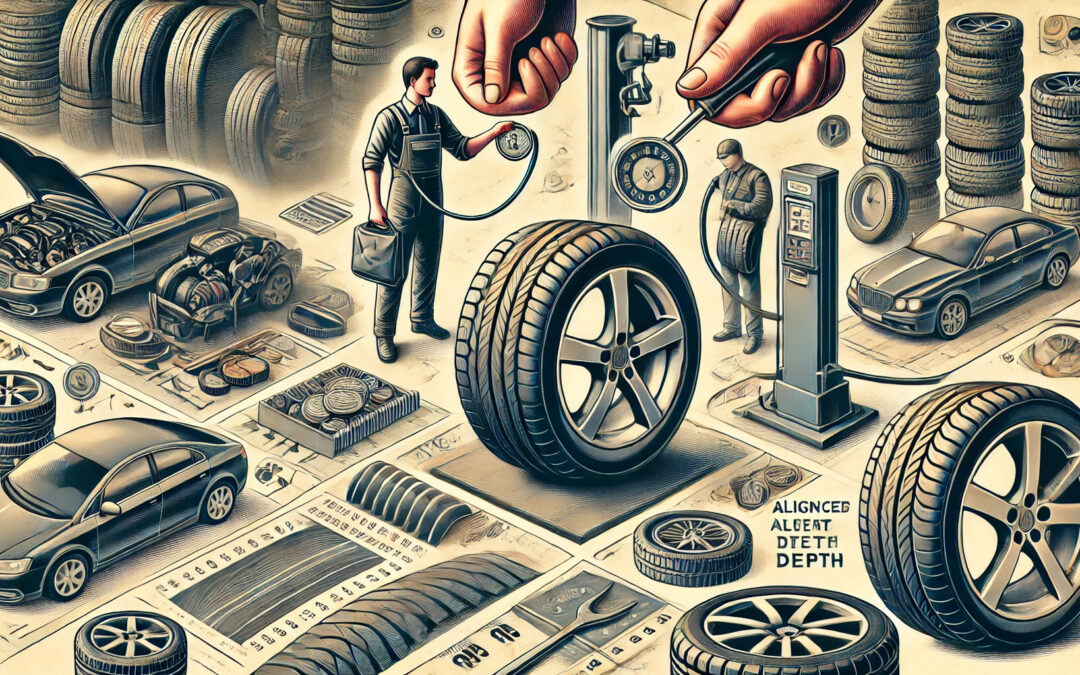Essential Tire Maintenance Tips for Longer Lifespan and Better Performance
Tires are one of the most critical components of a vehicle, directly impacting safety, fuel efficiency, and driving comfort. Proper tire maintenance can extend their lifespan, improve performance, and save you money in the long run. In this guide, we will cover essential tire maintenance tips that every driver should follow.
1. Check Tire Pressure Regularly
Maintaining the correct tire pressure is crucial for optimal performance and safety. Underinflated tires can lead to poor fuel economy, uneven wear, and a higher risk of blowouts, while overinflated tires can reduce traction and cause a harsher ride. Check your tire pressure at least once a month and before long trips, following the recommended PSI (pounds per square inch) specified in your vehicle’s manual.
2. Rotate Your Tires
Tire rotation helps ensure even wear across all four tires, prolonging their lifespan and enhancing handling. Generally, it is recommended to rotate tires every 5,000 to 8,000 miles or during every oil change. Check your vehicle’s owner’s manual for the recommended rotation pattern, as it may vary based on whether your car is front-wheel, rear-wheel, or all-wheel drive.
3. Inspect Tire Tread Depth
Tread depth is essential for maintaining traction, especially in wet or snowy conditions. A simple way to check tread depth is the penny test: Insert a penny into the tread with Lincoln’s head facing down. If you can see the top of Lincoln’s head, your tread is too low, and it’s time to replace the tires. Most tires should be replaced when the tread depth reaches 2/32 of an inch.
4. Align and Balance Your Tires
Misaligned wheels can cause uneven tire wear, poor handling, and increased fuel consumption. If you notice your vehicle pulling to one side or vibrating at high speeds, it may be time for a wheel alignment or balancing. It’s recommended to have an alignment check every 6,000 miles or whenever you install new tires.
5. Avoid Overloading Your Vehicle
Every vehicle has a specific weight limit, and exceeding it puts extra strain on the tires, leading to premature wear and a higher risk of failure. Check the maximum load capacity in your vehicle’s manual and avoid carrying excessive weight whenever possible.
6. Drive Smoothly and Avoid Harsh Braking
Aggressive driving, such as rapid acceleration, harsh braking, and sharp turns, can wear down your tires faster. To extend their lifespan, practice smooth driving techniques, maintain a safe following distance, and avoid sudden stops whenever possible.
7. Store Tires Properly When Not in Use
If you use seasonal tires, proper storage is essential to keep them in good condition. Store tires in a cool, dry place away from direct sunlight and chemicals. If possible, keep them in tire storage bags and place them on a clean, flat surface to prevent deformation.
Final Thoughts
Taking care of your tires is a simple yet effective way to enhance safety, improve fuel efficiency, and prolong their lifespan. By following these maintenance tips, you can ensure a smoother and more cost-effective driving experience. Regular inspections, proper inflation, and mindful driving habits will help you get the most out of your tires and keep you safe on the road.


Recent Comments